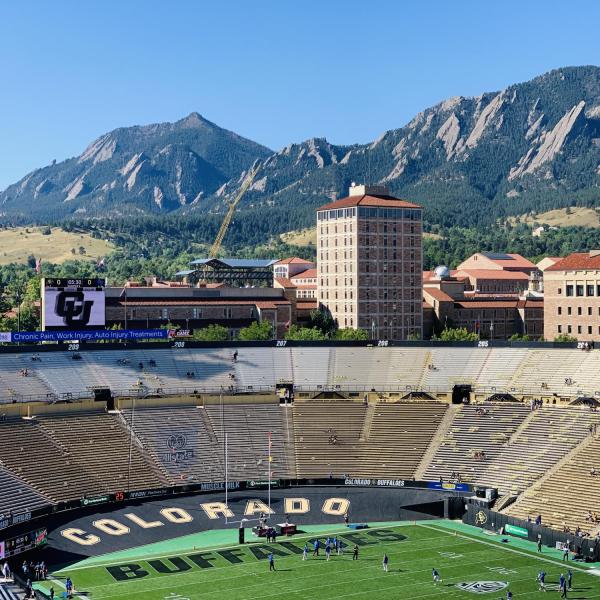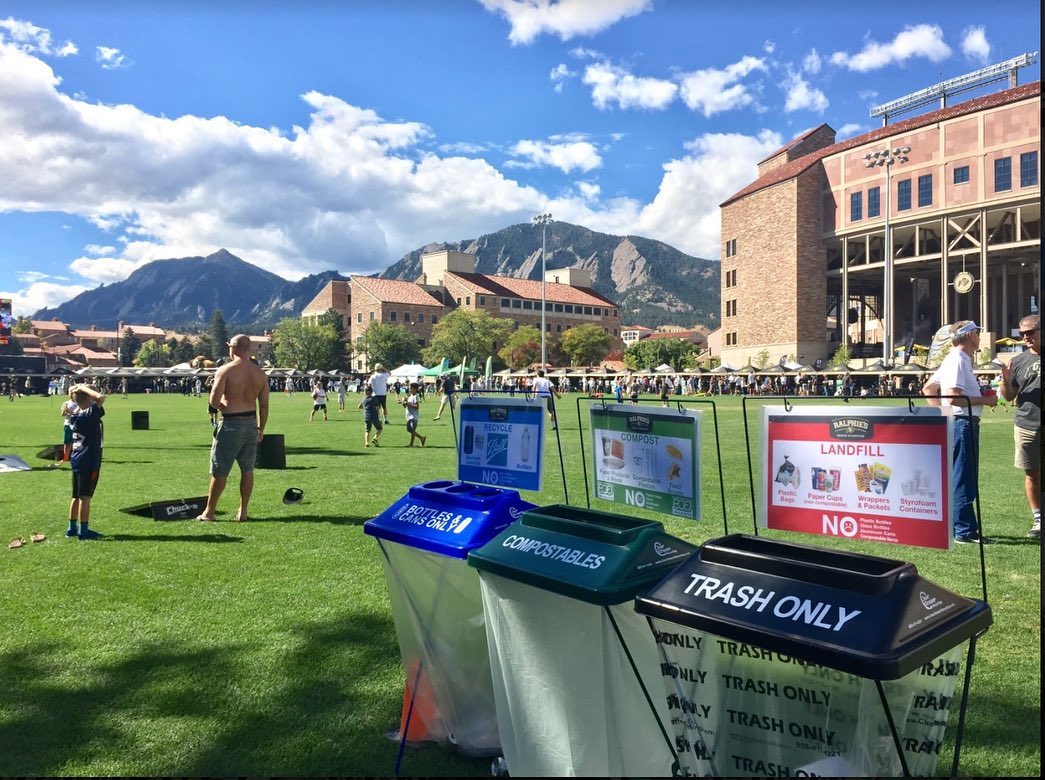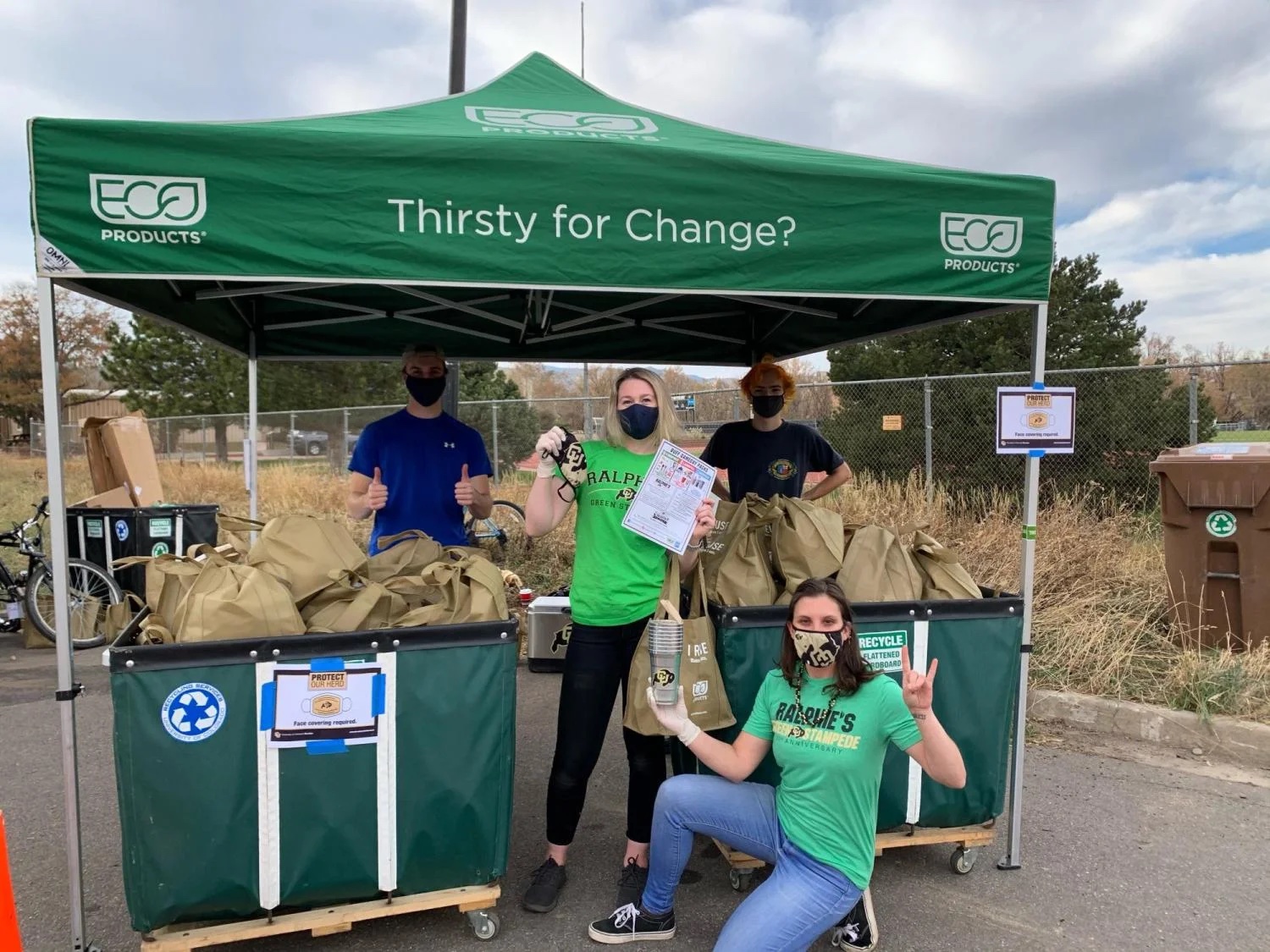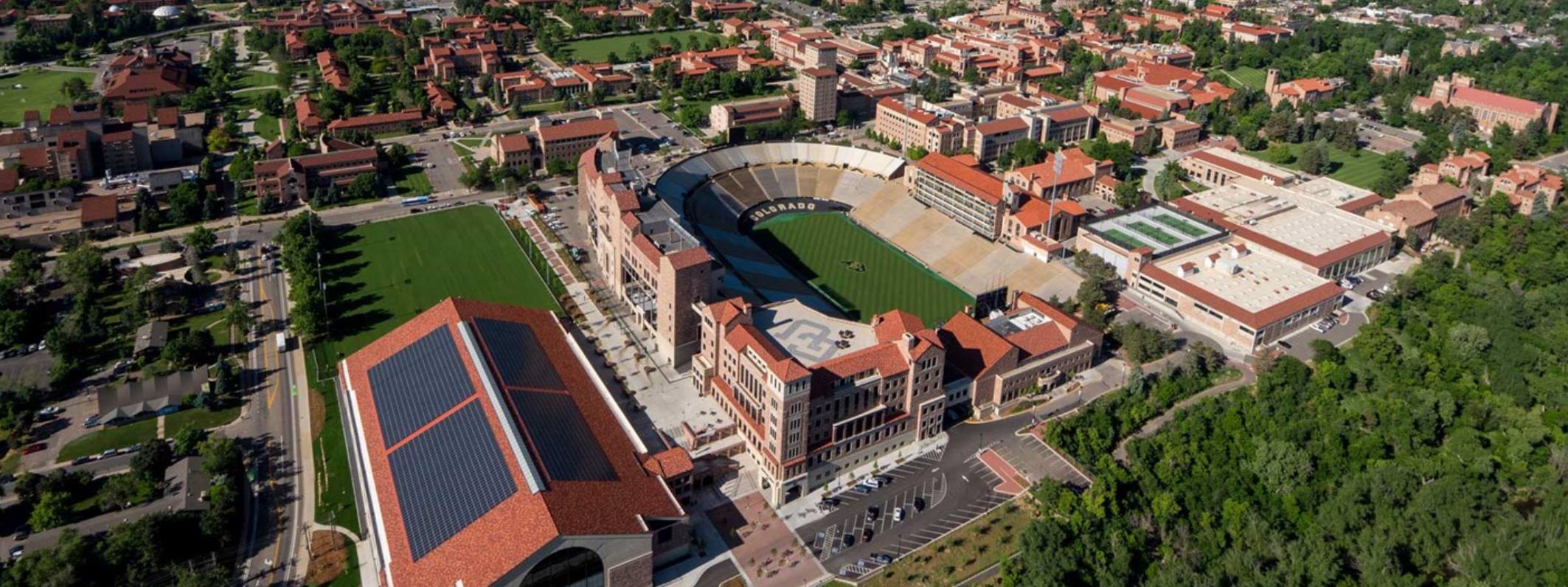University of Colorado Boulder’s (CU Boulder) Ralphie the Buffalo has been hailed as “The Greatest Live Mascot in College Football.” Ralphie magnificently energizes fans in Folsom Field stadium during football games. However, the buffalo also has helped make the school’s athletics department “one of the most diverse and effective collegiate sports greening programs in the United States,” according to the Natural Resources Defense Council (NRDC).
“Athletics is a great springboard for sustainability,” said Tom McGann, CU Boulder’s former associate athletics director. “We’re reducing our energy consumption and carbon footprint not only because it’s better for the environment … but also because it leaves an impression on many people, including athletes, students, faculty, staff, and fans.”

In 2008, the athletics department chose “Ralphie’s Green Stampede” (RGS) as its initiative’s name, the first sustainability campaign in NCAA D1 sports. It quickly gained traction as Folsom Field became the first football stadium in the U.S. with a zero-waste program.
Improving the recycling system was an initial RGS focus, with recycling and composting bins replacing trash cans and having plant-based compostable bags lining the compost containers. Other early steps included replacing plastics with compostable cookware and food vendors transitioning to packaging made with refillable, recyclable, or compostable materials.
These improvements contributed to Folsom Field’s diversion rate rising from 30% in the 2008 season to 78.5% in the 2012 season. The stadium’s waste generation totals dropped over 35% during that period.

Minimizing waste wasn’t just inside the stadium but also at the Franklin Field tailgating area. While recycling had been in place since 1993, RGS upped the effort through friendly competition.
Before games, Zero Waste Goalies monitor tailgating tents to determine which is that day’s sustainability champ. The winner receives a prize and a “Tailg8ter of the Game” flag. During the COVID-19 pandemic in 2020, RGS set up a drive-thru and handed out a Sustainable Gameday Pack, allowing fans to stay green while watching games at home.

When Colorado participated in 2011’s national Game Day Challenge, Folsom Field finished first among NCAA Division 1-FBS schools in two of the five categories by scoring the highest per capita composting rate (0.153 pounds per person) and the highest diversion rate (88%).
Folsom Field’s diversion rate has remained strong, with the university topping that category in the PAC-12’s Zero Waste Challenges for the 2018 and 2019 seasons. Meanwhile, investments were made in local carbon-reduction projects to counter the carbon footprint created by the football team and games at the stadium. The program’s success led CU Boulder to expand RGS to all its sports.
“As with any aspect of what we do, we’re not satisfied merely with success,” explained Mike Bohn, CU Boulder’s former athletics director. “We want to be the leaders in athletics program sustainability initiatives nationally.”
CU Boulder’s Athletics Department received its first Leadership in Energy and Environmental Design (LEED) award when the new basketball and indoor volleyball practice facility achieved a platinum rating in 2012. It now has three more platinum LEED buildings: Dal Ward Athletic Center, the Champion Center, and the football/track indoor practice facility.
The department also created the first car-free zero-waste tailgate in 2016 and later helped launch Gears 4 Green, an eco-friendly transportation campaign. Another program targeted lowering its water usage and restoring water to the Colorado River Basin.

Perhaps CU Boulder’s most groundbreaking project involved turf management. In 2011, it began “brewing” an organic liquid fertilizer known as “compost tea,” maintaining quality while decreasing the need for pesticides. By the end of 2012, the school cut its herbicide use by 93% compared to 2009.
The incorporation of dry organic fertilizer also has served to make the sports fields ecologically cleaner. The university’s turf team’s cutting-edge approach included installing weather stations, soil moisture sensors, and a central irrigation computer system to improve resource efficiency.
A founding member of the Green Sports Alliance, CU Boulder athletes have been active players globally on ecological issues.
In 2019, they signed the United Nations (UN) Sports for Climate Action Framework and, more recently, the UN Race to Zero Campaign pledge.
The entire school has an impressive environmental track record. It holds a gold star from the Association for the Advancement of Sustainability in Higher Education, had the nation’s first student-mandated renewable energy fee, and began one of the first collegiate recycling programs.
“CU-Boulder has for decades pursued innovative sustainability efforts,” explained Dave Newport, the university’s Environmental Center director. “Expanding sustainability efforts into sports and recreation was seen as a way to highlight the positive impact of sustainability.”





